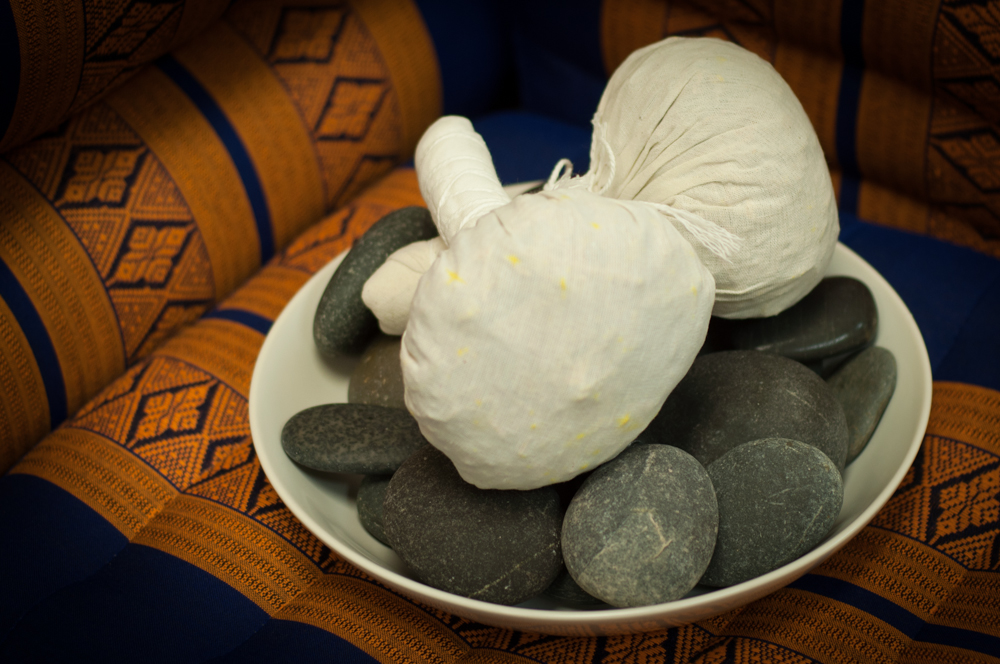
Key Takeaways
-
Herbal compresses can provide relief from diabetic foot discomfort.
-
Choosing the right herbs is crucial for an effective compress.
-
Proper preparation and application of the compress maximize benefits.
-
Being aware of foot sensitivity and avoiding skin irritation is important.
-
Consulting a healthcare professional is advised for personalized care.
Unlock the Healing Power of Herbal Compresses for Diabetic Foot Care
Living with diabetes means you have to take extra care of your body, especially your feet. Poor circulation and nerve damage, common issues in diabetes, can turn a simple foot problem into a serious complication. That’s why I want to talk about something that might help – herbal compresses. These natural remedies can soothe your feet, reduce discomfort, and improve circulation.
Why Herbal Compresses?
Herbal compresses are a traditional therapy that has been used for centuries to relieve pain and inflammation. For those with diabetic foot, these compresses can be particularly soothing. They work by delivering the healing properties of herbs directly to the skin and underlying tissues, which can help with:
-
Reducing inflammation and swelling
-
Improving blood flow to the area
-
Providing a sense of relaxation and well-being
But remember, while herbal compresses can be beneficial, they are a complement to your prescribed diabetic care, not a replacement. Always follow your healthcare provider’s advice first and foremost.
Preparation of Herbal Compresses
Getting your herbal compress ready involves a few steps, but it’s quite simple once you get the hang of it. You’ll need to select the right herbs, create the compress, and apply it properly to your feet. I’ll guide you through each step, so you’re confident in using this natural remedy to care for your feet.
Step-by-Step Guide to Using Herbal Compresses
Selecting the Right Herbs for Your Compress

Choosing the right herbs is crucial for an effective compress. You want herbs that have anti-inflammatory and analgesic properties. Here are some commonly used herbs:
-
Chamomile: Known for its anti-inflammatory effects.
-
Lavender: Has a calming effect and can relieve pain.
-
Peppermint: Provides a cooling sensation and can improve circulation.
Always source your herbs from reputable suppliers to ensure they’re of good quality and free from contaminants.
Creating Your Herbal Compress

“Women Preparing Dry Herbs in Mortar and …” from www.pexels.com and used with no modifications.
To make your herbal compress, you’ll need:
-
A clean cloth or towel
-
Your selected herbs
-
Hot water
Steep the herbs in hot water, just like you’re brewing a potent tea. Once the water has taken on the color and properties of the herbs, soak your cloth or towel in the herbal water. Wring it out so it’s damp but not dripping, and it’s ready to use.
Applying the Compress to Your Feet
Before applying the compress, make sure your feet are clean and dry. Wrap the warm herbal cloth around your feet, sit back, and relax. Let the herbs work their magic for about 15 to 20 minutes. If the compress cools down too quickly, you can dip it in the warm herbal water again.
As you’re enjoying the soothing warmth, remember that the skin on your feet might be more sensitive due to diabetes. It’s crucial not to use water that’s too hot as it could cause burns without you realizing it.
Frequency and Duration of Treatment
How often you use a herbal compress can vary. Start with once a week and see how your feet respond. If you find relief and have no adverse reactions, you might increase it to two or three times a week. Listen to your body—it will tell you what works best for you.
Most importantly, using herbal compresses should be a relaxing and beneficial experience. If you notice any discomfort or skin irritation, stop immediately and consult your healthcare provider. They can help determine if the herbal compress is suitable for you or suggest other diabetic foot care methods that might be better for your situation.
Safety Measures and Best Practices
When it comes to managing diabetes, safety always comes first, especially regarding your feet. Diabetic neuropathy can dull the pain sensation, meaning you might not feel injuries right away. That’s why being cautious with treatments like herbal compresses is so important. Let’s go over some safety measures and best practices to keep in mind.
Understanding Diabetic Foot Sensitivity
If you have diabetic neuropathy, your feet might not tell you when something’s too hot or too cold. To avoid burns or frostbite, always test the temperature of the herbal compress with your elbow or another area that’s more sensitive. It should feel warm, but never hot. If it’s too hot for your elbow, it’s too hot for your feet.
Avoiding Potential Skin Irritations
Because diabetes can also affect skin health, you need to be mindful of potential irritants. Here’s what you can do:
-
Perform a patch test with the herbs on a small area of your skin before using them in a compress.
-
Avoid herbs you’re allergic to or that have caused reactions in the past.
-
Keep the skin on your feet moisturized, but don’t apply a compress to broken or irritated skin.
If you follow these guidelines, you’ll minimize the risk of skin irritations and enjoy the benefits of herbal compresses safely.
Supplementary Diabetic Foot Care Advice
While herbal compresses can be a wonderful addition to your foot care routine, they’re just one part of the equation. Let’s look at some daily habits that can make a big difference in the health of your diabetic feet.
Daily Foot Inspection Routine
Every day, take a few minutes to inspect your feet. Look for cuts, blisters, redness, swelling, or nail problems. Use a mirror to check the bottoms of your feet or ask for help if you can’t see them well. Catching issues early can prevent complications down the line.
Keep your feet clean by washing them in lukewarm water every day. Dry them gently, especially between the toes. This helps prevent infections that diabetics are particularly prone to.
Choosing Proper Footwear for Diabetics
The right shoes can make all the difference. Opt for comfortable, well-fitting shoes that protect your feet. Look for features like:
-
Good arch support
-
Cushioned soles
-
Breathable material
-
Roomy toe box
Also, avoid walking barefoot, even indoors, to protect your feet from injury.
When to Consult a Healthcare Professional
If you notice any changes in your feet, such as persistent pain, open sores that won’t heal, infections, or significant changes in skin color or temperature, it’s time to see your doctor. Additionally, if you’re considering starting any new treatment, like herbal compresses, discuss it with your healthcare provider first.
-
They can advise you on the safety and suitability of herbal treatments for your specific situation.
-
They can help you integrate the compresses into your overall diabetes management plan.
Remember, your healthcare team is there to help you maintain your health and manage your diabetes effectively.
Harnessing Additional Natural Remedies for Foot Care
Besides herbal compresses, there are other natural remedies you can explore to take care of your diabetic feet. These methods can complement your existing care routine and provide additional benefits.
Maintaining Blood Sugar Levels Naturally
Keeping your blood sugar levels in check is the foundation of diabetes care. A balanced diet rich in vegetables, whole grains, lean proteins, and healthy fats can help regulate blood sugar levels. Regular physical activity also plays a key role. Here are a few more tips:
-
Monitor your blood sugar levels as recommended by your healthcare provider.
-
Stay hydrated by drinking plenty of water throughout the day.
-
Manage stress through relaxation techniques like deep breathing or meditation.
By maintaining good blood sugar control, you’ll help protect your feet from the complications of diabetes.
Hydrotherapy: Warm and Cold Water Soaks
Hydrotherapy can be a soothing and effective way to care for your feet. Alternating between warm and cold water soaks can stimulate circulation and reduce inflammation. Start with five minutes in warm water, followed by one minute in cold water, and repeat the cycle several times. Just make sure the water isn’t too hot or too cold to prevent damage to your sensitive feet.
Essential Oils for Enhanced Circulation
Essential oils like rosemary, eucalyptus, and ginger can be used to enhance circulation in your feet. Mix a few drops with a carrier oil like coconut or olive oil and gently massage into your feet. Not only can this improve blood flow, but it can also provide a relaxing experience. However, always do a patch test first to ensure you don’t have an allergic reaction to the oils.
Frequently Asked Questions
1. Can herbal compresses cure diabetic foot problems?
No, herbal compresses cannot cure diabetic foot problems. They can provide symptomatic relief and improve comfort, but they are not a substitute for medical treatment. Always follow your doctor’s advice for managing diabetes and its complications.
2. How often should I use herbal compresses?
The frequency of using herbal compresses can vary depending on your individual needs and how your skin reacts. Starting with once a week is a good approach, and you can adjust from there. Some may benefit from using them more often, while others might need to use them less frequently.
3. Are there herbs I should avoid if I have sensitive skin?
If you have sensitive skin, it’s best to avoid herbs that are known to cause irritation or allergic reactions. Herbs like peppermint and eucalyptus can be too intense for some people. Always start with a small amount to see how your skin reacts, and consult with a healthcare professional if you’re unsure.
4. Is it safe to use herbal compresses with other diabetic medications?
Generally, herbal compresses are safe to use alongside diabetic medications, as they are applied externally. However, it’s always wise to discuss any new treatment with your healthcare provider to ensure it won’t interfere with your medications or diabetic management plan.
5. What are the signs that I should stop using the herbal compresses and seek medical attention?
Stop using the herbal compresses and seek medical attention if you experience any of the following:
-
Skin irritation or rash
-
Increased pain or discomfort
-
Any signs of infection like redness, warmth, or pus
-
Persistent swelling that doesn’t improve
These could be signs of an adverse reaction or an underlying issue that needs medical attention.


